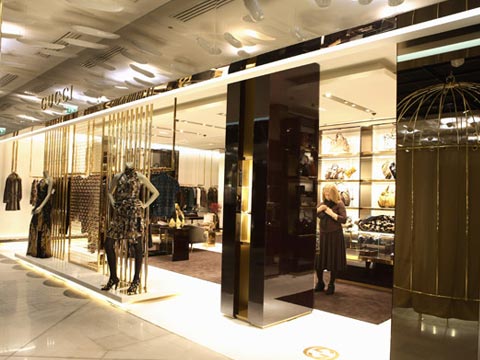Covid-19: Opportunities in crisis for Indian Luxury Market
Since the last few years, various incidents like demonetization, cash related purchase restrictions followed by GST have acted as a great deterrent for the growth of Indian luxury market. However, people had gradually digested these effects and Indian luxury market continues to experience a high growth rate. The development of new markets beyond metros in tier 2/3 cities and growth of new affluent class of consumers have been the key reasons for the expansion of this market in India. But, with the outbreak of Covid-19, the future of Indian luxury market has once again become questionable.
According to the recent report by Bain & Company, global luxury sales could drop up to 35% by the end of 2020. With the key luxury markets across the globe now affected, the pandemic poses serious threat to the sector. Some nations like China are predicted to see the rapid rebound, while others nations like Europe and the US could experience an extended impact. Already, there are signs of recovery in China. For brands ranging from Hermes to Louis Vuitton, store traffic is inching back and is projected to accelerate in the subsequent months. Similarly, with the prompt action taken by Modi government to combat the coronavirus epidemic, it is most likely that India will see strong recovery and emerge as a more powerful nation in the coming months.
Presently, with all luxury stores shut down, fashion shows postponed, art and watch events cancelled, supply chain disrupted and low consumer sentiments, it will certainly take a while for Indian luxury industry to bounce back. However, post Covid-19, success of luxury brands in India is mainly dependent on the following 5 factors:
Go Phygital: Luxury brands must break down the internal silos and seamlessly merge offline and online channels. They should increase the use of digital platform not just for transactional purposes but also to engage, interact and provide bespoke experience to the consumers. To fight this crisis, luxury retailers must invest more in online sales and marketing and leverage the full potential of omnichannel marketing strategy. They may consider to moving their promotional budget from outdoor to online.
Be Purposeful: Today, brands need to be purposeful to remain relevant. From Louis Vuitton to Loreal, all luxury retailers have altered their production units from making perfumes to sanitizers and designer wear to medical gowns and masks. Consumers will embrace the brands which show sense of responsibility and empathy in the hour of crisis. Therefore, it is very important for the luxury retailers to step forward and contribute for the well-being of the society.
Remain in contact: It is important for the luxury retailers to remain at the top of the mind of their high-end consumers. They may use tactics like virtual shopping session, online make-up classes, trunk shows or fitness sessions to engage and interact with the consumers. Luxury brand managers can provide personalized attention to the top clients by one to one engagement and conversation with them. They should develop meaningful content that foster a sense of community building during this epidemic.
Introduce entry level brands: At this point of time, when employment and financial markets are under pressure resulting in low consumer confidence and willingness to spend. Therefore, brands must use the tactic of introducing ‘bridge to luxury’ brands to make luxury available at accessible prices for young Indian buyers. Luxury retailers should see opportunity in this challenging scenario to entice new consumers by coming up with products with lower price points.
Go Green: Luxury brands must re-think about the planet and people while making the products. The outbreak of the virus has resulted in drastic changes in the behavior of consumers. They have become more concerned about the social and environmental issues. Therefore, fashion and luxury brands must relook at their value chain, from sourcing to manufacturing and from packaging to product disposal. Serious attempts should be made move from traditional linear economic model (take-make-dispose) to circular economy by embedding the 3R principle (Reduce, Reuse and Recycle) into production and consumption process.
Although the future is unforeseen and difficult to predict. Luxury brands must remain proactive and reinvent themselves to survive in this tough situation.
(This article has also been published in ET Retail on 31st March, 2020)
